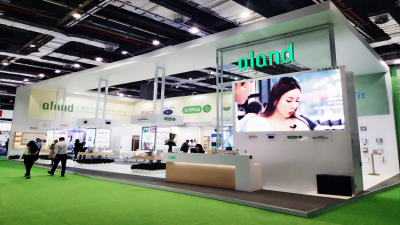Personalised and precision nutrition: Product innovation and new launches will rise, claims Vitafoods Asia speaker

IQVIA is a global provider of information, innovative technology solutions and contract research services.
“Instead of saying our product works for everyone, more companies are saying that if you have the following genetic profile, our product will work better for you,” Uzonwanne said.
One example is the rise of companies offering a suite of nutritional and wellbeing advice based on the consumers’ genetic profiles.
“These companies advice consumers on the types of food that they should eat, the types of exercise that they should do based on their genetic profiles. This small ecosystem around genetic information is emerging and it will continue to grow.”
Genetic information could also be used to develop new infant formula products.
“The claims around infant milk used to surround tolerance and digestion concerns…Today, it is more about the component of the products matching up to that of the mother’s breast milk. The manufacturers are making an alternative that matches the breast milk through a better understanding of the protein make-up of the mother’s breast milk.”
As the focus on genetic information intensifies, more opportunities for product innovation would arise, he said.
“The more data we have, the higher the opportunities for new product innovation,” he said.
At present, such personalised nutrition industry is still in its infancy in Asia, but he believes that regulators would “push the science behind it.”
He explained that this is because amid rising rates of non-communicable diseases, regulators are thinking of ways to reduce public health burden.
“They are asking themselves this question: what are the things that we can encourage that can engender a healthier population at a lower cost?”
He believes that in the next few years, there would be more partnership between genetic testing firms and food, skincare, and FMCG companies.
Uzonwanne will be presenting more information about the market for self-care, the role of genetics and privacy protection at this year’s Vitafoods Asia.
The event will take place on September 11 and 12 at Sands Expo and Convention Centre at Marina Bay Sands.
New industry
Besides product innovation, the focus on personalised nutrition based on genetics profiling would inevitably lead to the birth of a new industry that stores and protects genetic data, Uzonwanne said.
“Some governments, including Singapore, South Korea, and China are already thinking if they should pay for everyone to go for genetic testing and whether the data should be made available to commercial firms,” he said.
However, he cautioned that public concerns surrounding data privacy and cyber-attacks are key obstacles to the advancement of the industry.
“Fear of the unknown and legal issues will prevent this industry from forming.”
Protecting genetic data
As such, Uzonwanne cautioned that it would be wiser for the industry to practice self-regulation before authorities step in.
This is because firms might be bound to more stringent rules if authorities were to intervene.
“Genetic data would become even more valuable than financial data, there is a need to protect it and set rules on how to use it,” he said.
Some of the self-regulatory measures include 1) not revealing consumer personal info of the consumers (i.e. name) along with their genetic profiles; 2) setting ground rules on how to access and use genetic profile library; 3) Having compliance officers to ensure appropriate use of consumers’ genetic data.
He added that the government can normalise the conversation to alleviate the public’s concerns of extracting and storing of genetic data.
Cost
Today, the cost of genetic profiling test ranges from US$80 to US$100. This amount was five to six times higher five years ago, Uzonwanne said.
Although it remained costly to perform genetic profiling test, Uzonwanne said that the cost is bound to drop based on previous trends.
He added that the initial investment in genetic testing would eventually pay off, since healthcare services driven by genetic information are more effective, hence reducing the cost of public healthcare.












